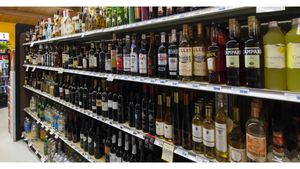IS STORE-BRAND MANAGEMENT TOO RISKY FOR RETAILERS?
So many retailers have benefited in recent years by religiously growing their private-label programs that it would seem like heresy to suggest that store operators are in danger of becoming too entrenched in this activity.But that's more or less what financial analyst Meredith Adler of Lehman Brothers said earlier this month in a speech at the Private Label Manufacturers Association's Store Brand
November 26, 2001
David Orgel
So many retailers have benefited in recent years by religiously growing their private-label programs that it would seem like heresy to suggest that store operators are in danger of becoming too entrenched in this activity.
But that's more or less what financial analyst Meredith Adler of Lehman Brothers said earlier this month in a speech at the Private Label Manufacturers Association's Store Brand Mania trade show in Rosemont, Ill. (See SN Nov. 19, Page 27)
"The investment community does not want retailers to become brand managers," she said. "It doesn't want them to take those risks and, frankly, they don't have the cost structure to allow them to do that."
Adler contended that while some private label is justified, retailers can't afford to assume all the research and marketing activities of consumer packaged goods companies. She said retailer private-label stockkeeping units will probably be narrowed through processes such as category management.
It may be true that retailers aren't equipped to manage brands in the way that CPGs do. But the fact is, they don't have to. Retailers have unique structures that give them some advantages that national brands don't have.
One industry observer put it this way: "Retailers can achieve a certain proficiency in product and brand development without the same level of spending as CPGs. That's because the retailer is closer to the consumer than brand manufacturers."
That closeness means retailers don't have to spend as much to research consumer behavior. They can retrieve valuable information through consumer sales and loyalty data, all of which they already own. They can turn this knowledge into private-label products that meet consumer needs. Let's also keep in mind that even manufacturers are pulling back somewhat in expenditures for research and marketing at this time of downsizing and streamlining.
Two companies that won private-label awards at the PLMA event have shown they understand what it takes to successfully manage store brands. John Paul, director of store brands for Nash Finch, which both owns stores and supplies products to retail customers, stressed that successful private-label programs put marketing and promotional support behind store brand management. Nash Finch's support includes advertising, displays, contests, giveaways, sampling and coupon books.
Rich Ryan, director of corporate brands for Stop & Shop Supermarkets, said his company can take advantage of the size of its parent firm Ahold USA, which has created a dedicated central department for the private brands of its retail units.
So food retailers will and should continue to build their store-label programs, to the extent this makes sense. We shouldn't forget why retailers have pursued these so vigorously in the first place. It's not just a profit goal, although that's extremely important. Private label has provided a level of product exclusivity that retailers didn't have before. It hasn't and won't replace national brands, which are category anchors and major drivers of traffic and excitement. But we've seen that store and national brands can work together to find their proper balance. The job of the retailer is to determine that balance.
About the Author
You May Also Like




